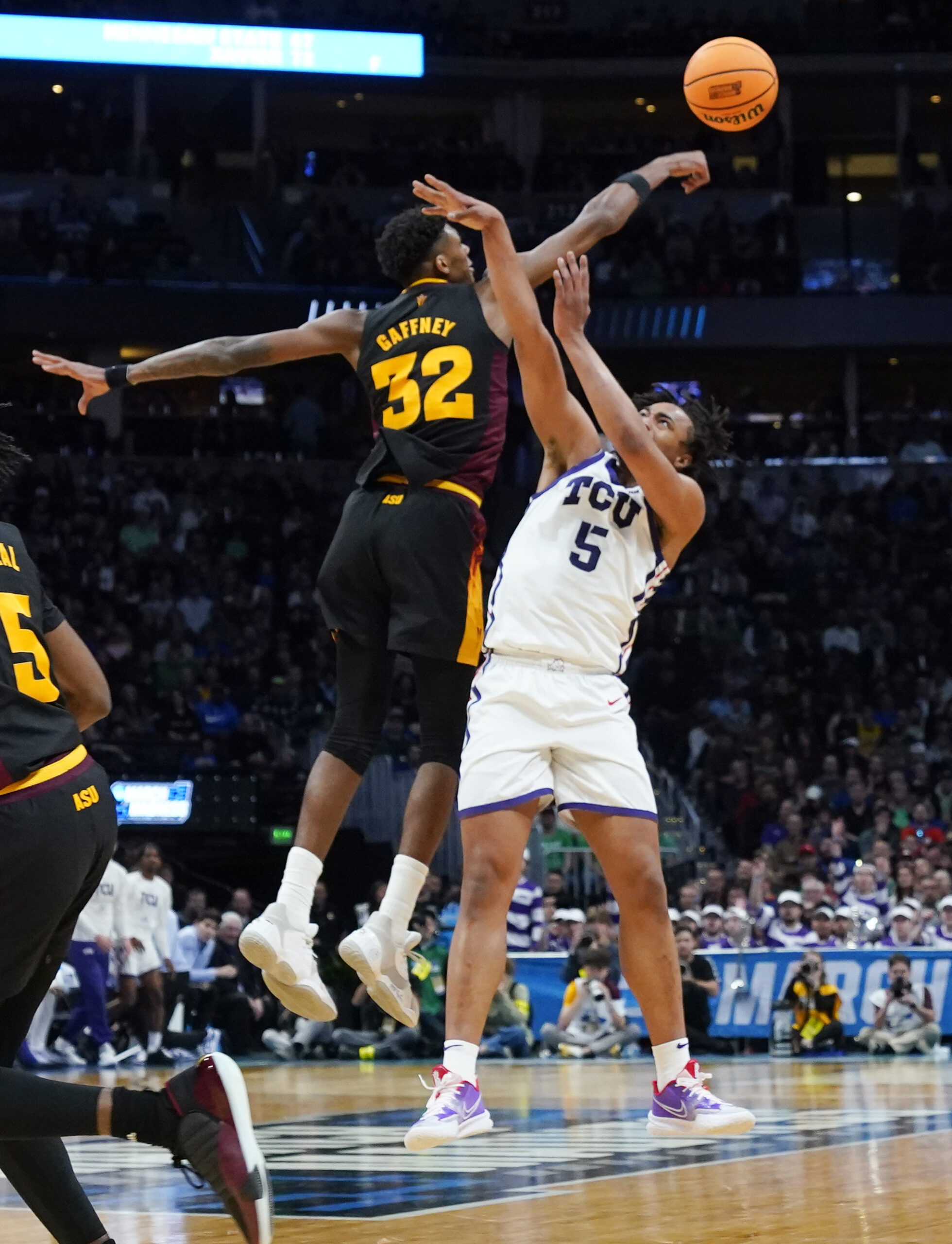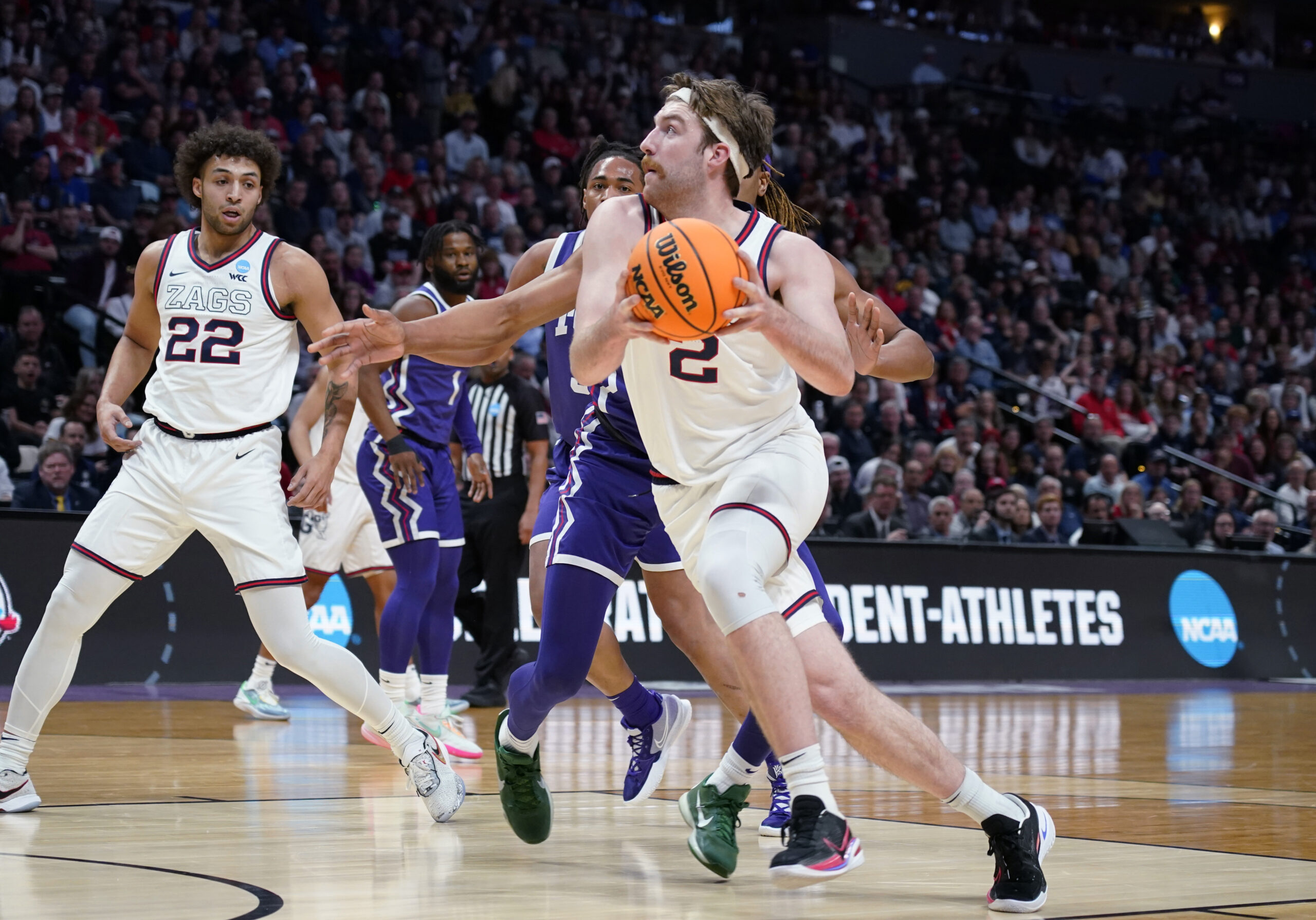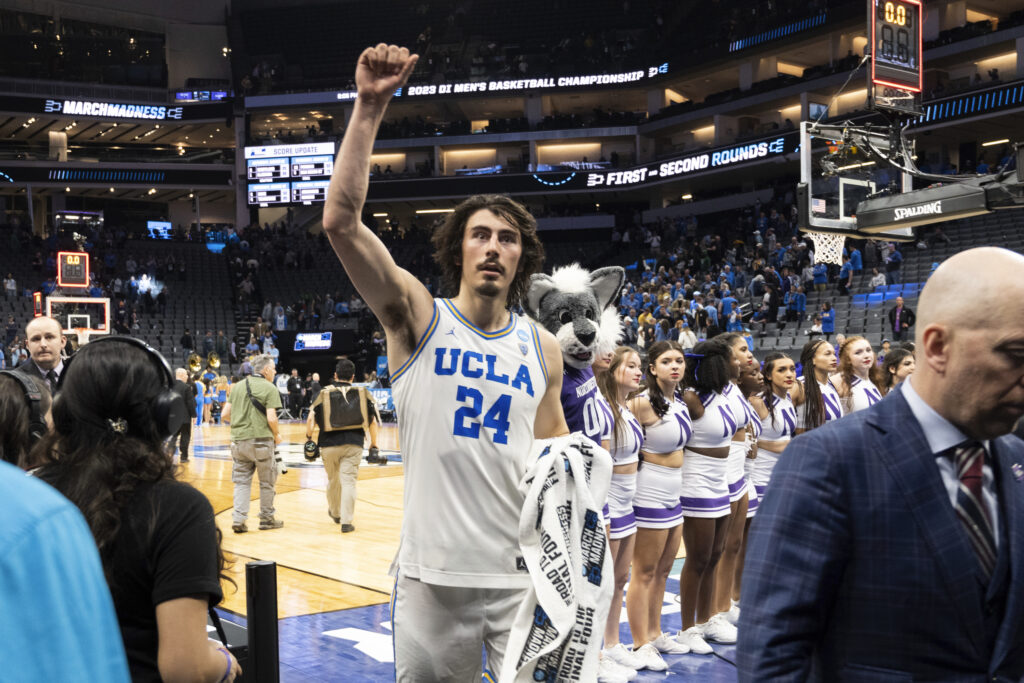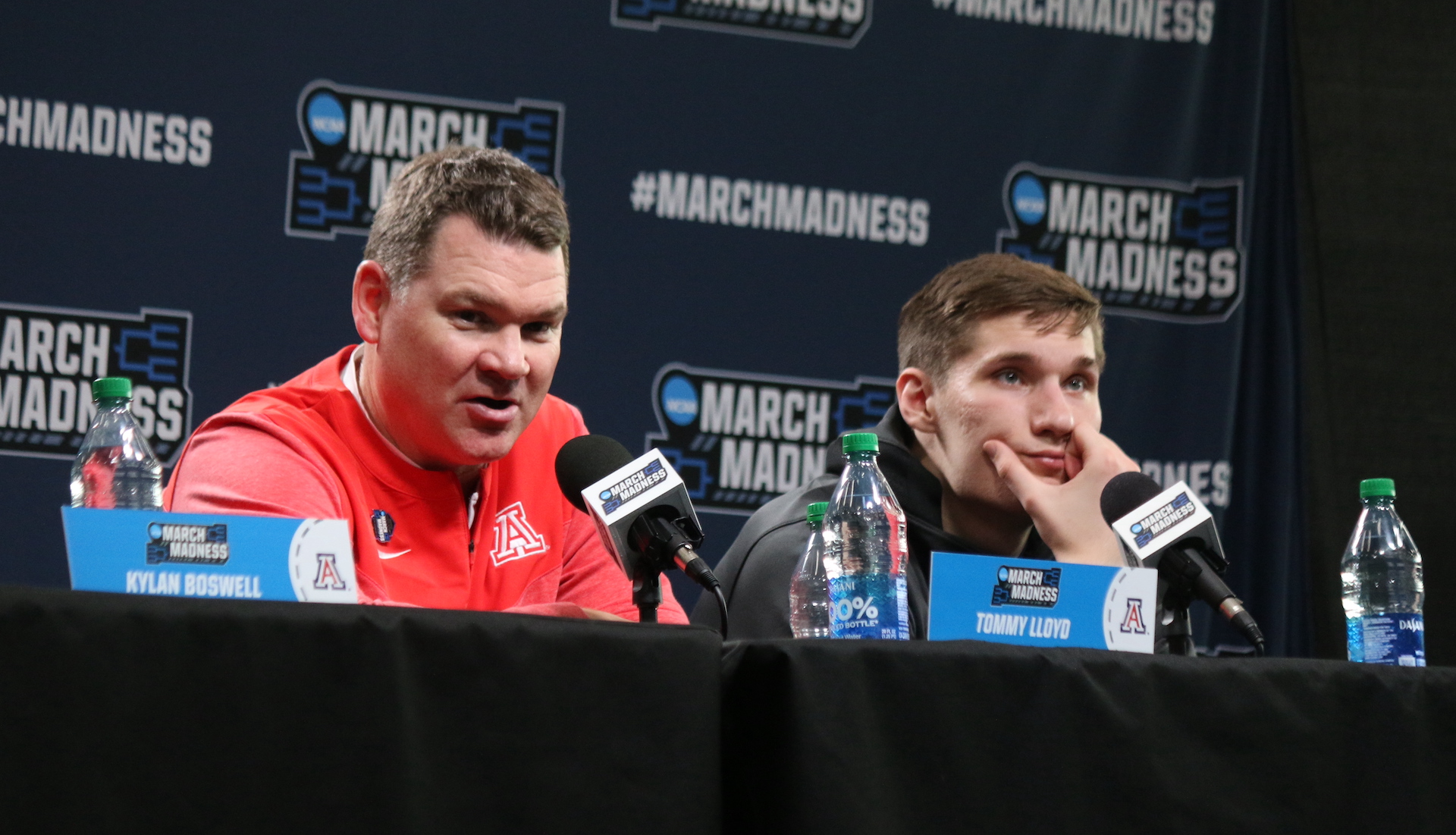The Pac-12 did not find redemption in the NCAA Tournament. With two rounds down, three teams have been eliminated and only one, UCLA, remains alive.
The conference was as bad in March as it looked all season, when the thin top and the soft middle were on display for all to see (and criticize).
But not all disappointment is created equally.
Let’s assign the Pac-12’s woes in the NCAAs into three buckets:
The loss to Princeton, in which the Wildcats were outscored 24-8 down the stretch by a No. 15 seed, is arguably the worst loss in school history.
(At least when Arizona melted down against No. 15 Santa Clara three decades ago, it lost to a future Hall of Famer in Steve Nash.)
We questioned Arizona’s toughness prior to the NCAAs but didn’t expect that it would be an issue in the first round. But the Wildcats lacked energy, fortitude and grit — the essential building blocks for March success — against Princeton.
Combine the timid showing with their 2022 elimination game against Houston, in which the Wildcats cowered from a rock fight, it’s clear that coach Tommy Lloyd must rethink his approach to roster construction.
His plan works for the regular season, but to thrive in the NCAAs, Arizona needs to get tougher, mentally and physically.
— The bubble sitters
USC and Arizona State played to their seeds in the NCAAs, which was exactly the problem. Their upside was sketchy from the start given the difficulties often faced by all teams assigned to the No. 10 and 11 slots.
Both were solid underdogs against middle-of-the-pack opponents from stronger conferences, and both faced logistical hurdles, as well:
USC went across the country, to Columbus, Ohio, for a 9:15 a.m. (Pacific) tipoff against Michigan State.
ASU’s path was even more treacherous with a First Four game in Dayton on Wednesday, followed by a Friday affair at altitude in Denver. That the Sun Devils failed to hold a late lead against a stout opponent (TCU) was no surprise.

— The non-qualifiers
Ultimately, the Pac-12’s problem was a lack of quality depth. Send just four teams into the NCAAs, with two of them assigned double-digit seeds, and the likelihood of a poor collective performance soars.
The framework for March was set in November and December with a series of ghastly non-conference losses — there are too many to name — and pillowy soft schedules.
Once league play began, Utah, Colorado, Washington State, Washington, Stanford, and Oregon were facing steep climbs to qualify for the NCAAs.
None made the necessary strides.
None had the requisite combination of talent and consistency.
Any improvement for the Pac-12 in the final month of the season must begin with better results in the first month.
Now, our look at winners and losers from the first and second rounds …
Winner: The little guys. Nine schools that don’t play major college football advanced to the second round, including two Cinderellas from New Jersey (No. 15 Princeton and No. 16 Fairleigh Dickinson).
Losers: No. 12 seeds. Traditionally, the No. 12s have played havoc with March Madness brackets, but not this year. Oral Roberts, VCU, Drake and Charleston were 0-4 in the first round.
Winner: First Four teams. Three schools that survived in Dayton went on to win their round-of-64 matchups: Pittsburgh, Arizona State and, of course, Fairleigh Dickinson.
Loser: Blueblood programs. North Carolina didn’t qualify for the tournament, while Kansas, Duke and Kentucky lost in the second round. It’s the second time in three years that the Sweet 16 doesn’t feature any members of that illustrious quartet — but only the second time this century. We’ll see if their absence impacts tournament TV ratings.
Winner: UCLA. The Bruins advanced to the Sweet 16 for the third consecutive season, fending off Northwestern in the second round. However, the victory came with a potential cost as reserve guard David Singleton injured his ankle in the final minute. His effectiveness in the next round is unknown, but the Bruins are running out of healthy guards. Defensive star Jaylen Clark is out for the season.
Loser: Arizona. Plenty of high-profile basketball programs have lost to No. 15 seeds, but Arizona is the only school to have been victimized twice with the loss to Santa Clara in 1993 and Princeton in 2023. Thirty years ago, the Wildcats regrouped and advanced to the Final Four in ’94. Will they follow that path next season?
Winner: Princeton. The Tigers rallied to stun Arizona, then walloped Missouri in the second round to advance to the Sweet 16 for the first time since 1967. The run comes seven months after the passing of legendary Princeton coach Pete Carril. Somewhere, he’s smiling … maybe.
Loser: Purdue. The Boilermakers joined Virginia as the only No. 1 seeds to lose to the No. 16, but the issues for coach Matt Painter’s program run deeper than one game. Purdue has been bounced from the NCAAs by the No. 13, 15 and 16 seeds in the past three years.
Winner: The Big East. Overlooked throughout the season, the conference sent five teams into the tournament and three have moved into the Sweet 16 (Xavier, UConn and Creighton). Overall record: 7-2.
Loser: The Big 12: The dominant league in the land for four months, the Big 12 has thus far underwhelmed in the NCAAs. Seven teams (out of 10) qualified for March Madness but only two reached the Sweet 16 (Kansas State and Texas). Overall record: 7-5.
Winner: Gonzaga. The March Madness stalwart rode Drew Timme’s 28 points to a second-round victory over TCU and its eighth consecutive trip to the Sweet 16 … and a date with UCLA in Las Vegas. The basketball gods are smiling down on us.
Loser: The Big Ten. Eight teams entered the round of 64 and one team survived the round of 32. Yet another disappointing tournament for the conference.
Winner: San Diego State. The Aztecs beat No. 12 Charleston in the first round and No. 13 Furman in the second to reach the Sweet 16 for the first time in almost a decade. (Sometimes, fate twists in your favor.) Next up for SDSU: The top overall seed, Alabama.
Loser: Mountain West (excluding SDSU). Three of the conference’s four participants were bounced in the First Four or the first round, continuing a ghastly trend. The MW has just two opening-round wins since 2016.
Winner: Eric Musselman. The Arkansas coach is one of the best in the game in March. His Razorbacks took down top-seeded Kansas on Saturday, giving Musselman his third consecutive trip to the Sweet 16 and fourth in the past five tournaments.
Loser: Tony Bennett. Another first-round flameout for Virginia left Bennett with a fascinating resume: In the past five postseasons, he has one NIT bid, three first-round losses in the NCAAs … and one national championship.
Winner: Sean Miller. The former Arizona coach, who was not personally penalized for the program’s misdeeds — — we got a good chuckle over that decision — resurfaced at Xavier and has guided the Musketeers into the Sweet 16. With two more wins, Miller will set foot on ground he never touched while at Arizona: The Final Four.
Loser: Kentucky. The Wildcats are paying coach John Calipari $8.5 million annually, and all they have to show for it is another early exit from the NCAAs. Then again, it’s far better to lose to Kansas State in the second round than St. Peter’s in the first.
Winner: Houston. The Cougars hammered Auburn in the second round and are two victories from playing in the Final Four in their hometown. And if they don’t fill the Midwest region’s spot in NRG Stadium, that school from Austin just might.
Related posts:
 Wilner Hotline – Saturday Night Five Takeaways: UCLA Rolls, Washington Folds
Wilner Hotline – Saturday Night Five Takeaways: UCLA Rolls, Washington Folds

(AP Photo/Ralph Freso, File)
Wilner – Today’s Big 12 Makeover, Impact on Pac-12 Hotline mailbag: Peeking at the ’23 schedules, expansion timeline, buyer’s remorse in L.A.(?) and loads more
Hotline mailbag: Peeking at the ’23 schedules, expansion timeline, buyer’s remorse in L.A.(?) and loads more
 Wilner: Kliavkoff’s risky strategy, an alternate Pac-12 universe (with ESPN), the MLS on Apple, unequal revenue shares and more
Wilner: Kliavkoff’s risky strategy, an alternate Pac-12 universe (with ESPN), the MLS on Apple, unequal revenue shares and more
Jon Wilner
Jon Wilner has been covering college sports for decades and is an AP top-25 football and basketball voter as well as a Heisman Trophy voter. He was named Beat Writer of the Year in 2013 by the Football Writers Association of America for his coverage of the Pac-12, won first place for feature writing in 2016 in the Associated Press Sports Editors writing contest and is a five-time APSE honoree.

